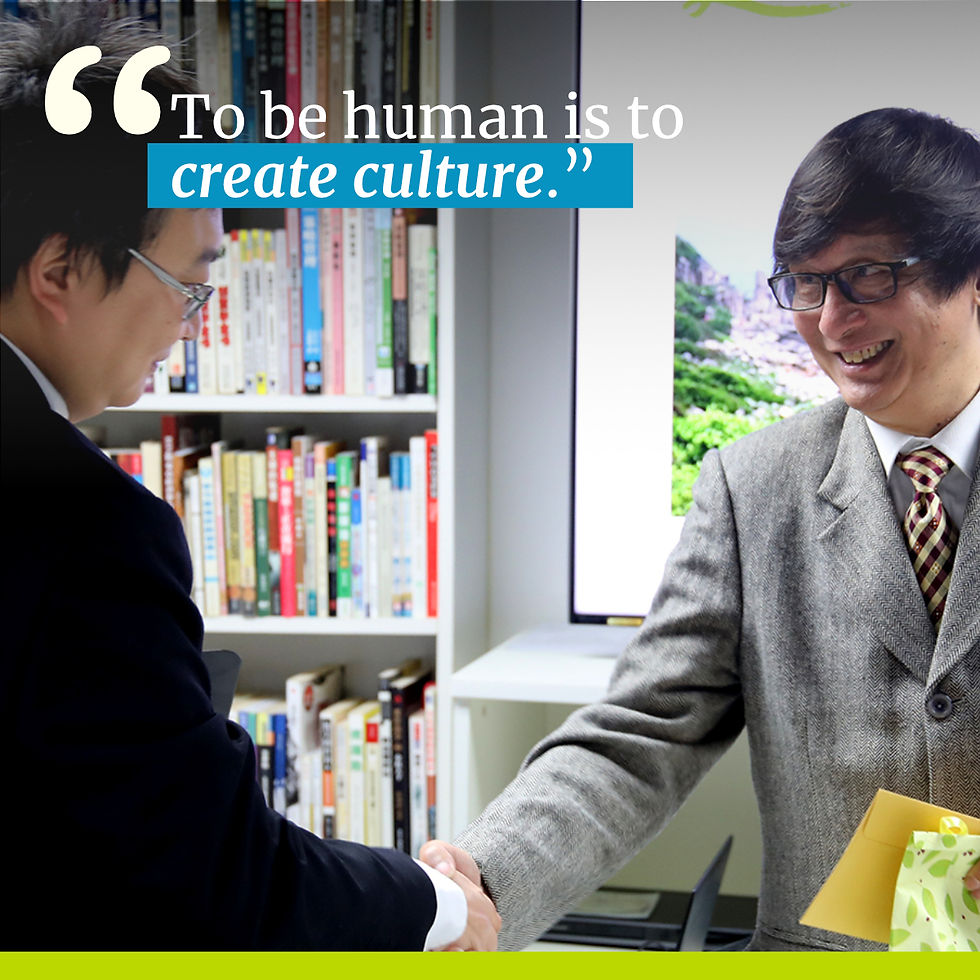Dr. Wing Tai LEUNG (LEUNG) is the Founding President of Lumina College. He was formerly working in Breakthrough youth ministry for 40 years. He served in public and community works, including Central Policy Unit of Hong Kong Government and Council Member of three universities in Hong Kong. LEUNG received his PhD (Communication) from Regent University, Master of Fine Arts (Cinema-Television) from University of Southern California, MA (Radio-TV-Film) from Bowling Green State University, and Master of Theological Studies from Gordon-Conwell Seminary.

In view of the world being in a crisis of fragmentation, LEUNG explored the Christian mind in the development of the emerging world in a global context, bringing also special relevance to the Asian context. Adopting a co-creation approach, he elaborated how Christian higher education has been adapting herself in response to the emerging world. He believed that Christian higher education could be a harbinger for reunifying the world through collaboration, intercultural communication, and community building. Christian higher education could be a counter culture in the marketplace of ideas, among conflicting worldviews and chaos of values. In it, students are nurtured to embrace diversity of cultures and co-create culture with God to face this internationalizing world.
Having explored the social landscape of machine culture in a globalizing world, LEUNG suggested four models of internationalization as possible responses of Christian higher education reaching out to the global world, namely: "Internal", "External", "Digital Network" and "Co-creation" models. Their relationship to global fragmentation and possible reunification were identified. LEUNG strongly recommended the "Co- creation" model which is biblically based. The co-creation model goes beyond simply setting up partnership with overseas schools, it includes also "cultural dialogue, partnering and indigenous contextualization. Faith and learning integration would be done in multiple perspectives and cultures."
How can the co-creation model of internationalization work? LEUNG illustrates Lumina College as a case for Christian higher education in Hong Kong, China. Inaugurated in 2015, Lumina College has the vision of approaching Christian higher education in three dimensions: "coherency", "creativity" and "commitment".
The principle of Coherency starts from the belief that the world is God's world, both in creation and redemption. This perspective places emphasis on worldviews and value systems. “God’s world” is the foundation of our Christian worldview and is the starting point for any possible integration of faith and learning.
The principle of Creativity reminds us that we are co-creators with God. We are not only stewards of God to take care of the garden or the earth. We are also called to create culture to plow the land, and to collaborate with God in continuous creation.
The principle of Commitment is relational. It is our commitment to love God and love our neighbors. Hence, education and commitment involve the whole person; we care for and serve others as our Father is a loving father, and love demands the commitment of the whole person.
The Co-creation model references the notion of Mediator of Christ as Christians to serve as agents of reconciliation. A few pre-requisites are suggested: Intercultural Shaping of Curriculum, Dialogic Communication, Global Perspectives, Hybrid Pedagogy with Human and Mediated Modes, Inquiry Approach to Pedagogy, Culture Making Projects, and Mediatoring as a Way of Life. The impact of Co-creation model has some precedence. LEUNG quoted the most prominent one: Harvard-Yenching Institute to illustrate. Today at most prestigious universities, the chair professors of Chinese studies came from it. Started as a small Christian college in the East in 1919, Yenching University could make a pivotal change in the Western partnering university and then changed the world. This is what Lumina College is seeking after.
In the concluding remarks, LEUNG reiterated and reaffirmed: “Christian higher education is a battlefield among conflicting worldviews… We need to provide a coherency in understanding God’s created world”; “Culture making is the best expression of the Christian worldview and a praxis of coherency. To be human is to create culture, to co-create with God and collaborate with others, including those from other cultures”, “Commitment to share our lives, our resources, our talents, and our destinies with others is the ultimate goal of Christian high education. We need to be committed to God and through this commitment love others and God's creation. We are relational beings and through our connections with God, human society, and mother earth we shall find the best fulfillment in life."




Comments